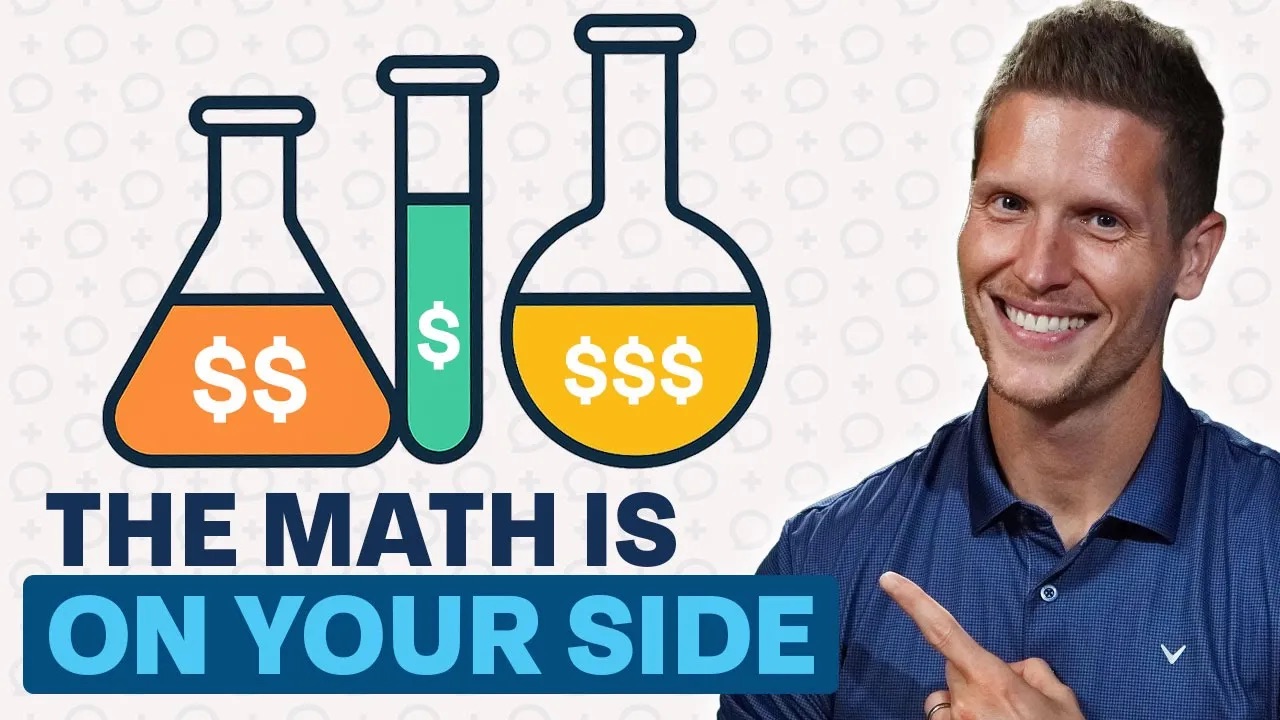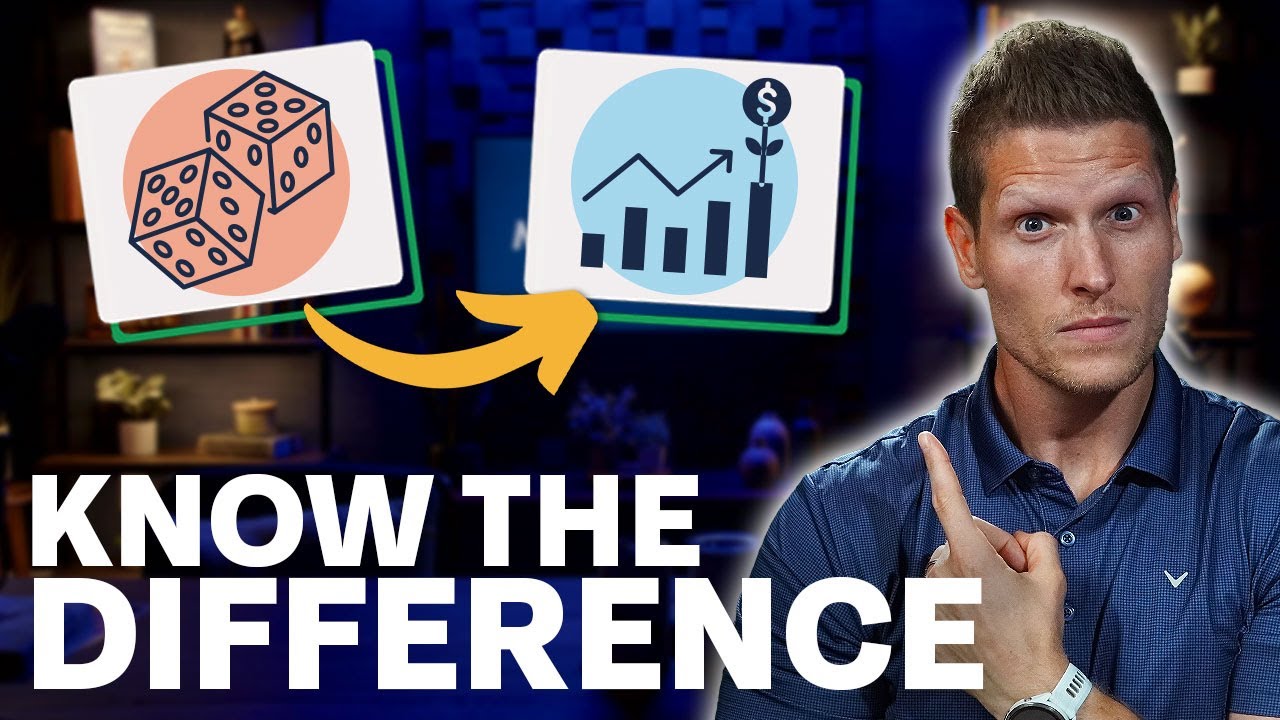In this highlight, we discuss if it you can rollover a Roth 401(k) to a Roth IRA and if that would make sense financially.
For more information, check out our free resources here.

Subscribe to our free weekly newsletter by entering your email address below.
In this highlight, we discuss if it you can rollover a Roth 401(k) to a Roth IRA and if that would make sense financially.
For more information, check out our free resources here.
We have a new question up next. Okay, can I roll my Roth 401k into a Roth IRA to get benefits specific to a Roth IRA? I contribute to a Roth 401k for simplicity, and it has low-cost index funds.
So is there a benefit of her rolling some of that over? The way most retirement plans work is that while you’re working, you can’t really do anything with those dollars in terms of distributing them, generally speaking. Unless your plan allows for in-service withdrawals while you’re working, you’ve got to grow the money in the account. You’ve got to grow your Roth 401k dollars or your traditional 401k dollars until you either retire, change jobs, or leave employment, you know, whatever.
Now, some plans do allow for what are called in-service distributions, where you can, while you’re working, roll some of your vested balance into an IRA of your choosing. You can roll it into a traditional IRA or a Roth IRA. So, yes, can you do it? Absolutely. You certainly have the ability to do that.
And when you retire or when you change jobs, one of the benefits that affords you is inside your employer plan, you are captive to the investment options that are available inside that plan. So, you said your 401k is pretty good. A lot of low-cost indexed options. Awesome. Take advantage of those. But maybe your assets are reaching critical mass, where you’ve got over $400,000, $500,000, $600,000. You’re thinking, “Man, I need to focus on not just low-cost indices, but I need a custom allocation built for my situation, and I want to look at asset location as well. And I want to hold specific growth-type assets in my Roth bucket, but those growth-type assets aren’t available in the Roth 401k.”
Then, yeah, you could consider rolling your Roth 401k into a Roth IRA. It opens up to the entire investment universe, which is great. Another really great thing is, with the recent legislation that passed, Roth 401ks used to have required minimum distribution requirements. That even though it was in the Roth bucket, when you got to age 72, now 73, soon to be 75, you would have to pull money out of your Roth 401k, even if you didn’t want to. So, you’d have to roll it over to a Roth IRA to avoid that. Well, now Roth 401ks don’t have RMD requirements anymore, so the differences between Roth IRAs and Roth 401ks are kind of going away a little bit.
So, what are the big differences you ought to know about, Lynn, so that you can think through this? Roth IRAs have access to the entire investment universe. Roth 401ks are captive to the investment options available inside your plan. Roth IRAs, this is up for debate, but I’m gonna speak sort of loosely here, no ERISA creditor protection. Right, so one of the things that 401ks provide you is if you were to get sued or you were to go into a litigious environment, those are protected assets inside the Roth IRA that might not be the case. There’s been some legislation that suggests that if the original dollars came into a 401k and they rolled into an IRA, that protection follows. I don’t want to speak too dogmatically on that, but that is one of the differences. No RMDs on either one.
And so, then the third thing you want to take into consideration is Roth 401ks often have some sort of cost to them, whether it be an investment advisor who’s helping with the plan or a third-party administrator or record keeper. There’s probably some costs of that plan that are being passed on to you as a participant inside a Roth IRA. If you choose a big brokerage house like Fidelity, Vanguard, or Schwab, you might not be paying anything other than just the internal operating expense of the funds that you’re investing in. So, perhaps the Roth IRA can even be a little bit cheaper than the Roth 401k.
What I love that you said is kind of rolling a Roth 401k into a Roth IRA, tax-free distribution, no issues. A lot of people can ask, “Hey, can I roll my 401k into my Roth? I really want to do that.” And I say, “Yeah, that’s cool.” But if it’s pre-tax dollars and you’re rolling it into a Roth IRA, it’s going to be a taxable event. The people that do that and don’t recognize it, boy, are they in for a big surprise when tax time rolls around. Because all of a sudden, they get this 1099-R and they look at it. “I did a direct trustee-to-trustee. Doesn’t matter if you went from pre-tax to tax-free. You’ve got to pay tax on distribution.” So, just make sure whenever you’re doing rollover events, this is why it might make sense to take the relationship to the next level if you’re working through some of this stuff. Make sure you know the account that’s coming from and the account it’s going to, and the tax ramifications and implications of that. For more information about working with us, go to aboundwealth.com and find our Work With Us page.
Read through our thoughts and tips on how to manage your money better.


Financial Order of Operations®: Maximize Your Army of Dollar Bills!
Here are the 9 steps you’ve been waiting for Building wealth is simple when you know what to do and…
View Resource
How Much Should You Save?
How much of your income can you replace in retirement? You can replace different portions of your income in retirement…
View Resource

Financial Advisors React To WILD Money Advice On YouTube
Watch Now
The Real Science Behind Building Wealth
Watch Now
5 Lessons Investors MUST Learn To Build Wealth
Watch Now

How about more sense and more money?
Check for blindspots and shift into the financial fast-lane. Join a community of like minded Financial Mutants as we accelerate our wealth building process and have fun while doing it.




A little knowledge is an amazing thing.
Get your money's worth of answers to your financial questions and more niche topics.
Subscribe to our free weekly newsletter by entering your email address below.